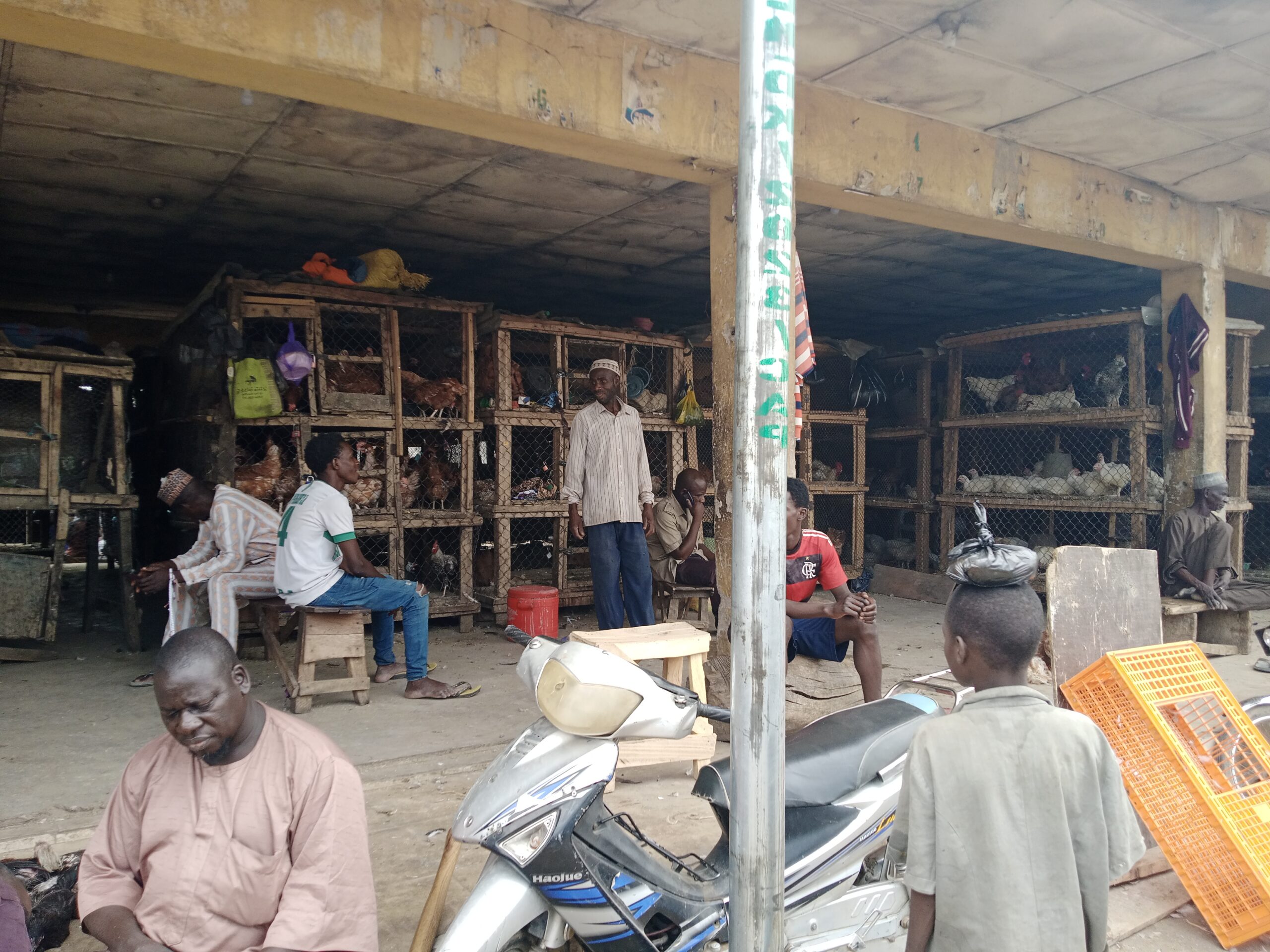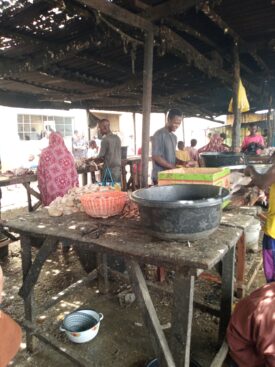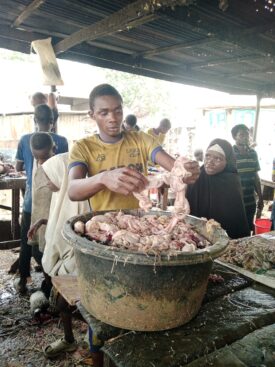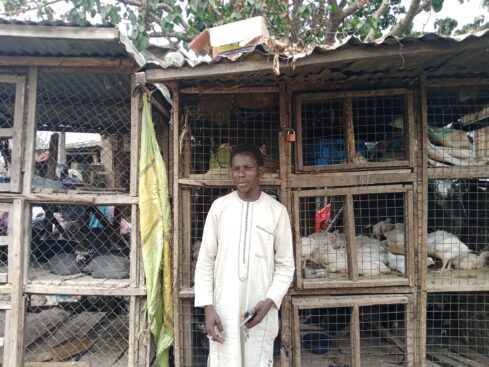Sallah: Bauchi Poultry sellers lament low patronage
The end of Ramadan fasting is traditionally marked with a lot of activities, from preparation of sallah clothes to buying food items and other arrangements that add lustre to the festive period. As Sallah holds on Wednesday, Muda Lawan market in Bauchi bustled with activities as people came to buy different items, especially food and […]

img 20240408 125436 724
The end of Ramadan fasting is traditionally marked with a lot of activities, from preparation of sallah clothes to buying food items and other arrangements that add lustre to the festive period.
As Sallah holds on Wednesday, Muda Lawan market in Bauchi bustled with activities as people came to buy different items, especially food and other commodities to prepare for the religious festivity.
At the market, Daily Trust observed how grains and vegetables sellers made brisk business considering the volume of customers they attended to at the time of the visit, unlike sellers of chickens, guinea fowls and other birds who decried low patronage.
Ibrahim Abdullahi, 45, is a poultry birds seller at Muda Lawan market in Bauchi. He has been in the business for 20 years now. This year, he said the patronage is low compared to last year when they made brisk business during the sallah period.
“Well, we just have to thank God with the way the market is going. Although buyers are coming to buy the birds, the patronage is, however, low compared to last year this time. As you know, the economic situation in the country has changed everything. Last year, we sold layers at N4,500 but this year the price has increased significantly. Layers and guinea fowls are now going for between N5,500 and N7,000 or beyond, depending on the size or weight. The same thing with broiler chickens. The indigenous breeds now go for N5,000 up to N8,000.
“I think it is not even about the price increase; it is lack of money in the hands of people. Nigerians are now used to this inflation so much that they don’t bother much buying even when prices have inflated.” he lamented.
Another birds seller, Alhaji Haruna Alkaleri, 49, also attributed the low patronage to economic hardship in the country, saying, “The market this time is slow and not encouraging. People are not buying the birds. This is due to the economic hardship in the country. People want to buy but they don’t have money. Many birds are being brought here but people are not patronising because of the economic situation, and this may likely cause the price to drop. Last year this time, the market was bustling, as you brought new birds, people would rush to buy. But the story is different this year.” Alkaleri decried.
Muhammad Shamsu Usman, the Secretary of the Poultry Sellers Association in Muda Lawan Market in Bauchi, said, “There is drastic reduction in sales this year due to the economic situation in the country. The business is slow. Prices of items have increased. If you were buying an item at N1,000 or N2,000, now it is N4,000 or N5,000 or even N6,000.
“The market looks empty you’d think it’s not the Muda Lawan you knew before that was bustling with a lot buyers. People are now after the food to eat and not chickens. Because of increase in production cost, the prices of the birds have also increased. A guinea fowl of N3,000 before is now N5,500 or N6,000.”
Usman, however, kept hope alive that the market situation would change before the sallah. “Humans are always in expectation. It’s because of this reason that even the birds were brought here even when the buyers are few. But you know, everything is in the hands of God. We’re expecting that the situation at the market will change.”
For Zuhairu Muhammad, a poultry butcher, the situation is “manageable”. They slaughter, eviscerate and process chickens bought at the market by buyers, and sometimes run the same service to people who bring their chickens from home for processing. “We thank Allah. We charge N100 for each chicken of small or medium size, and N200 for the ones that are large. Business is going on. We’re managing. We thank God.”
Hassan Usmar Ahmad, 21, is another poultry butcher with 9 years experience in the business. He said, “You know everything is in the hands of God. We thank Him. As you can see our members are busy working. And one good thing is that this year we’ve not recorded cases of theft or missing parts of the birds we’re working on. Sometimes people would steal parts as we worked, but this year we haven’t recorded any cases.”
Some buyers at the market who spoke with Daily Trust lamented increase in prices of the birds.
One of the buyers who gave his name as Adamu Sulaiman Umar, said, “The price today is high. I’m haven’t bought any birds yet, I’m still surveying. But as I went round to survey the market, I found out that small chickens are around N5,000 to N6,000. But since we’re here, we’ll definitely buy although the prices are beyond what we expected.”
Another buy who simply identified herself as Hajiya Asma’u decried that because of the economic hardship in the country, the people that can afford buying chickens are now reducing the quantity. “A chicken of N5,000 or N6,000 is now between N8,000 and N10,000. If you are not financially stable, you can’t afford to buy eat chicken this time. It’s not a necessity and therefore one mustn’t stress oneself. We just have to thank God that we are alive and healthy, but things are not hard in the country. The suffering is too much. Unlike before when you would buy 5 or 6 chickens, now you have to settle for 2 or 3 at maximum because of the cost. We just pray for Allah’s intervention. May He ease this hardship for us.”
Photos:



